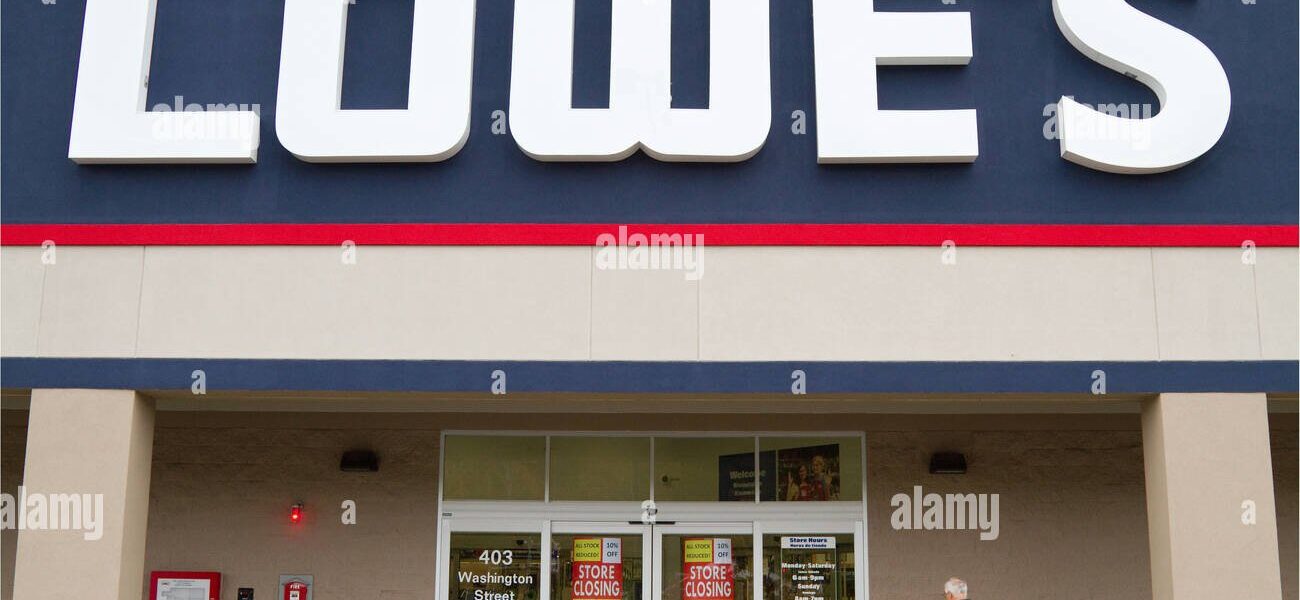Lowes going out of business? Not quite. Contrary to rumors, Lowes is not going out of business. The company is actually implementing strategic changes to adapt to evolving market trends. With a focus on enhancing customer experience and streamlining operations, Lowes aims to secure its position in the retail industry. Let’s delve into the details of how Lowes is navigating this challenging landscape.
Lowes Going Out of Business: A Detailed Analysis
In recent times, the news of a retail giant like Lowes going out of business has sent shockwaves through the market and raised concerns among consumers and investors alike. This article delves into the reasons behind Lowes facing such a critical situation and explores the potential impact on various stakeholders.
The Rise and Fall of Lowes
Lowes, a well-known name in the home improvement industry, has been a go-to destination for homeowners, contractors, and DIY enthusiasts for decades. With its wide range of products, competitive pricing, and emphasis on customer service, Lowes carved out a significant market share in the retail landscape.
However, despite its initial success and strong presence in the market, Lowes has recently been facing challenges that have led to speculation about the company’s future. Several factors have contributed to Lowes’ decline and eventual decision to shut down its operations.
Factors Contributing to Lowes’ Downfall
1. **Competition from Online Retailers**: The rise of e-commerce giants like Amazon has posed a significant threat to brick-and-mortar stores like Lowes. The convenience of online shopping, competitive pricing, and wide product selection have lured customers away from traditional retailers.
2. **Changing Consumer Behavior**: With the younger generation preferring experiences over material possessions, the demand for home improvement products has seen a decline. Millennials and Gen Z consumers are more inclined towards renting homes or living in urban areas where DIY projects are less common.
3. **Economic Downturn**: The economic recession and subsequent slowdown in consumer spending have impacted Lowes’ sales and profitability. During tough economic times, people tend to cut back on discretionary spending, which includes home improvement projects.
4. **Management Issues**: Internal management challenges, such as ineffective strategic decisions, poor financial planning, and lack of innovation, have also played a role in Lowes’ downfall. Failure to adapt to changing market trends and consumer preferences has put the company at a disadvantage.
The Impact of Lowes Going Out of Business
The news of Lowes going out of business has far-reaching implications for various stakeholders, including employees, customers, suppliers, and investors.
1. **Employees**: The most immediate impact of Lowes’ closure would be on its employees. With thousands of workers facing potential job losses, there is a sense of uncertainty and anxiety among the workforce. Many employees depend on their jobs at Lowes for their livelihood, and the sudden closure could have devastating effects on their lives.
2. **Customers**: For loyal customers who have relied on Lowes for their home improvement needs, the closure of the stores would mean having to find alternative suppliers. This could disrupt ongoing projects, lead to inconvenience, and potentially result in higher costs if they have to switch to more expensive retailers.
3. **Suppliers**: Lowes’ closure would also have a ripple effect on its suppliers, many of whom are small businesses dependent on the retailer for a significant portion of their revenue. The loss of a major customer like Lowes could lead to financial strain and operational challenges for these suppliers.
4. **Investors**: Investors who have stakes in Lowes would face financial losses as the company’s stock value plummets. The closure of Lowes’ stores would signal a significant setback for the retail industry as a whole, raising concerns about the viability of other brick-and-mortar retailers in an increasingly digital world.
The Future of Home Improvement Retail
As Lowes grapples with the decision to go out of business, the home improvement retail landscape is undergoing a transformation. New players are entering the market, technological advancements are reshaping the shopping experience, and sustainability is becoming a key focus for consumers.
1. **Emergence of New Competitors**: While traditional retailers like Lowes are facing challenges, newer entrants in the home improvement space are gaining ground. Online platforms specializing in home goods, niche stores offering sustainable products, and tech-driven solutions for home improvement are disrupting the market and attracting a different segment of consumers.
2. **Technology and Innovation**: Augmented reality tools, virtual home design services, and smart home solutions are changing the way customers interact with home improvement products. Retailers that embrace technology and provide a seamless omnichannel experience are likely to stay ahead in the game.
3. **Sustainability and Eco-Friendly Practices**: With growing awareness about environmental issues, consumers are seeking eco-friendly alternatives in home improvement. Retailers that prioritize sustainability, offer green products, and promote responsible practices are resonating with the modern consumer.
In conclusion, the news of Lowes going out of business serves as a stark reminder of the challenges faced by traditional retailers in today’s competitive landscape. The factors contributing to Lowes’ downfall are multifaceted, ranging from external market forces to internal management issues. The impact of Lowes’ closure extends beyond the company itself to its employees, customers, suppliers, and investors. As the home improvement retail industry evolves, adapting to changing consumer preferences, embracing technology, and prioritizing sustainability will be crucial for the survival and success of retailers in the future.
Something Scary Just Happened At Lowe's
Frequently Asked Questions
### Is Lowe’s going out of business?
No, Lowe’s is not going out of business. Despite some store closures and restructuring efforts, Lowe’s remains a leading home improvement retailer committed to serving its customers.
### How does the future look for Lowe’s amidst rumors of going out of business?
Lowe’s future outlook is focused on adapting to changing market conditions, enhancing its online presence, and providing innovative products and services to meet the evolving needs of customers. The company is actively working to strengthen its position in the home improvement industry.
### Are there any specific locations where Lowe’s is shutting down operations?
While there may have been instances of store closures, Lowe’s continues to operate numerous locations across the country. The company assesses its store portfolio regularly to optimize performance and ensure it is meeting customer demand effectively.
### What steps is Lowe’s taking to remain competitive and avoid going out of business?
Lowe’s is implementing strategic initiatives such as enhancing its e-commerce platform, improving customer service, introducing new product lines, and streamlining operations to remain competitive in the home improvement market and position itself for long-term success.
Final Thoughts
In conclusion, the news about Lowe’s going out of business sends shockwaves through the retail industry. Many loyal customers and employees are left uncertain about the future. The impact of Lowe’s going out of business will be felt across communities where its stores are located. It serves as a stark reminder of the ever-changing landscape of the retail sector and the need for businesses to adapt swiftly to survive.




